PATTERN DESCRIPTION:
The Thunder Beetle is a high floating, buggy pattern made to imitate beetles and cicada’s. Beetles are very common terrestrials, therefore make great patterns to fish in any type of water throughout the year. The bulky profile of a beetle is unmistakable and big trout will seldom refuse a well presented beetle imitation. I mainly tie Thunder Beetles with a black body. For the underbody, I prefer peacock, black, blue, purple and red colors. If you don’t have any beetles in your fly box, tie up a few Thunder Beetles and give them a try when nothing else seems to be working. You might be surprised by the results.
MATERIALS NEEDED:
HOOK: Dai Riki 710 (3xl nymph hook)
THREAD: Veevus 8/0 Black
BODY: 3mm Black Foam
UNDERBODY: Peacock Herl
EYES: 2mm foam strip
THUNDER THIGH LEGS: 1mm foam strip, Superfloss Leg Material
FRONT LEGS: Black Superflex
WING: Poly Wing
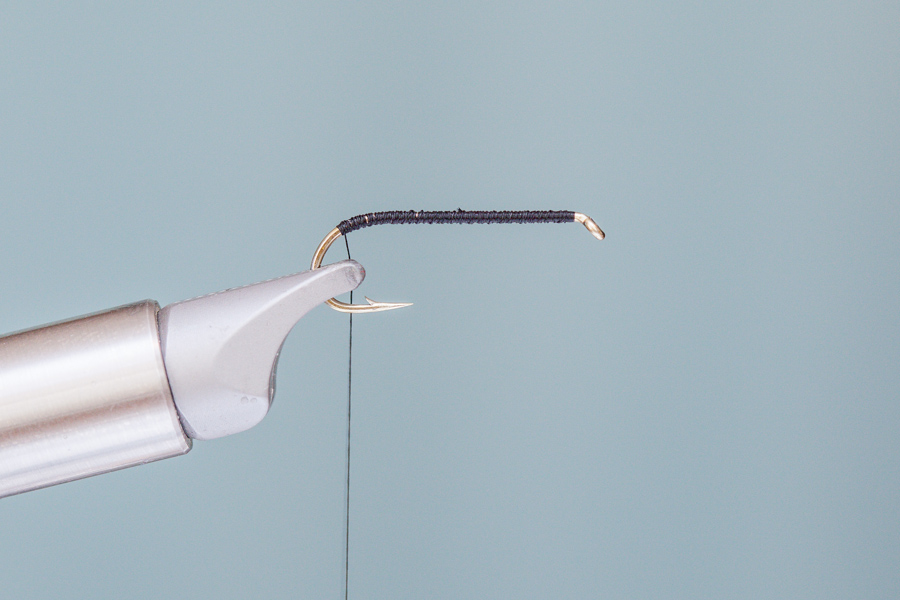 STEP 1:
STEP 1:
Form a thread base with tying thread. End thread beyond barb of hook as shown. *With beetle patterns, I prefer the the look of the completed beetle further back on the hook, therefore, I push the pattern beyond the barb of the hook.
STEP 2:
Advance thread towards eye of hook. Next, cut a strip of 3mm foam. Width of foam should be about 1 1/2 times width of gap and at least 2 inches long.
STEP 3:
Apply a thin layer of superglue to thread wraps.
STEP 4:
Bind down foam with firm, spaced thread wraps, working towards bend of hook.
STEP 5:
End at bend of hook as shown above. I prefer the look of beetles pushed back on the hook, covering up the bend of the hook slightly. I haven’t noticed any hookup issues with this fly design.
STEP 6:
Compress foam underbody with firm thread wraps working back and forth. The underbody will be covered up with dubbing or herl in the next step, so no need for perfection here.
STEP 7:
Apply 5-7 strands of peacock herl by the tips. To reinforce the herl, you can make a dubbing rope by wrapping the herl around the thread, and then wind forward, or you can apply a gold wire ribbing over the herl.
STEP 8:
Wind herl forward taking care to cover foam underbody.
STEP 9:
Secure butt ends with thread and then trim flush.
STEP 10:
Position thread about 1/4 ways back from the hook eye as shown above.
STEP 11:
Pull and stretch foam strip over the body and bind down foam with 5-6 firm wraps of thread.
STEP 12:
Lift up foam strip and advance thread forward to hook eye.
STEP 13:
Again, bind down foam strip with 5-6 firm thread wraps.
STEP 14:
Cut a thin strip of red, green or white foam to be used as eyes. Place thin strip of foam over the top of the fly.
STEP 15:
Advance thread back to 1/4 of the way behind eye of hook as shown above. Next, fold the black foam strip back onto itself and bind down with 4-5 firm thread wraps. Notice the foam head is extended just beyond the eye of the hook.
STEP 16:
Trim the remaining foam strip flush with the body.
STEP 17:
Advance thread forward, over the top of the fly, to just behind eye of hook. Next, trim eye material flush with the bullethead.
STEP 18:
Apply a strand of poly yarn with 2-3 firm wraps of thread.
STEP 19:
Advance thread back to 1/4 way behind hook and bind down poly yarn with 2-3 firm wraps of thread.
STEP 20:
Top view of beetle.
STEP 21:
Trim poly wing flush with end of beetle body. Next, prepare thunder thigh legs with foam strip and superfloss.
Here is a quick video demonstrating how to create the legs:
[youtube https://www.youtube.com/watch?v=Uh4INC-XYIw]
STEP 22:
Advance thread forward as shown above.
STEP 23:
Bind down thunder thigh legs on both sides of fly with 2-3 thread wraps.
STEP 24:
Top view.
STEP 25:
Trim the butt ends of the foam legs and secure with thread wraps. Next, tie in 3-5 strands of herl on top of fly.
STEP 26:
Attach front legs on both sides of the fly. Next, make a dubbing rope with the herl and tying thread and cover any visible thread wraps, ending at hook eye.
STEP 27:
End herl at hook eye and whip finish. Dubbing can be substituted for ease and durability is desired.
STEP 28:
Competed Thunder Beetle.

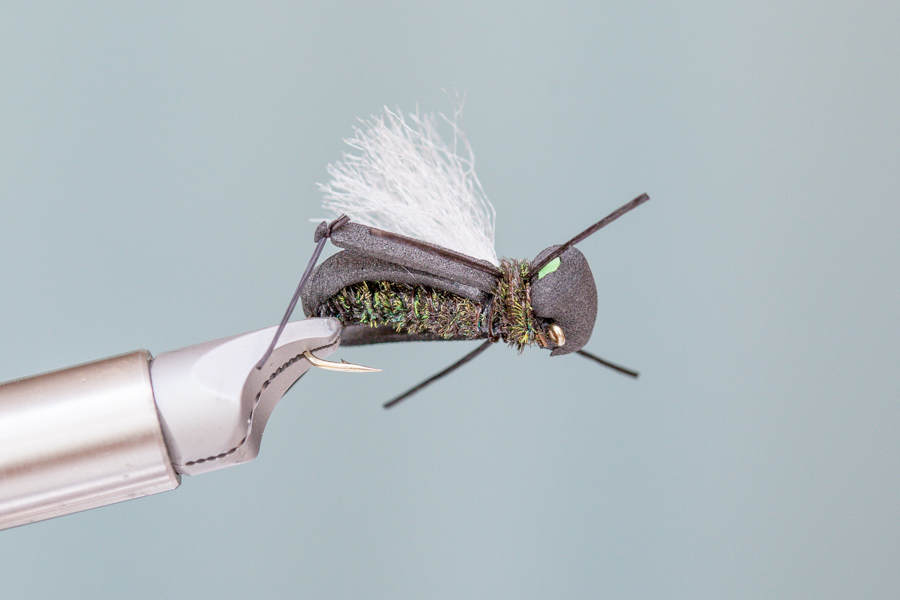
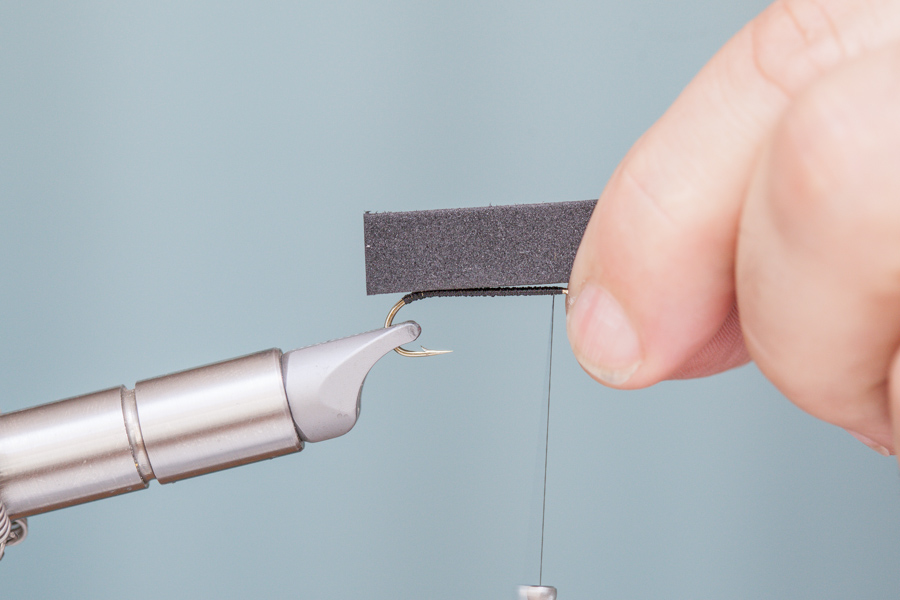
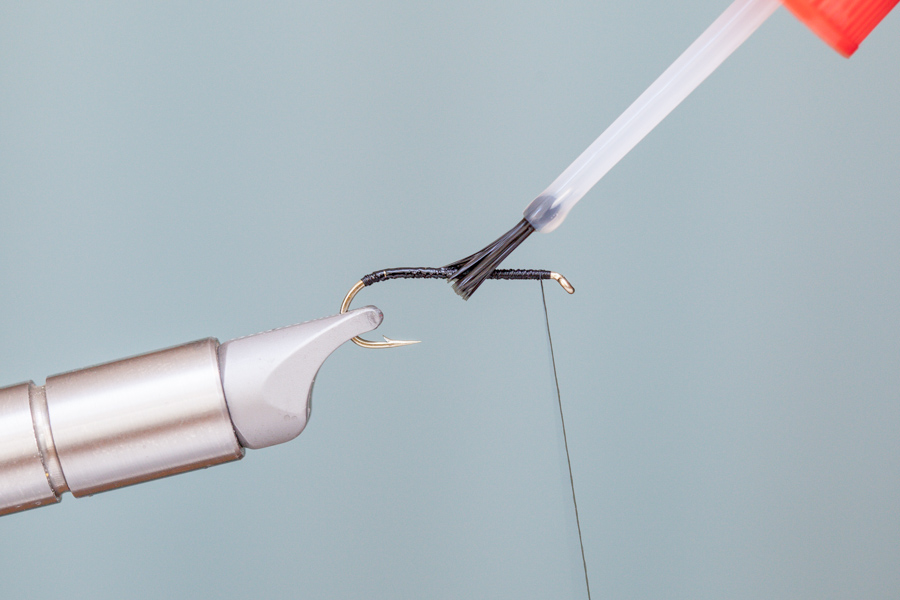
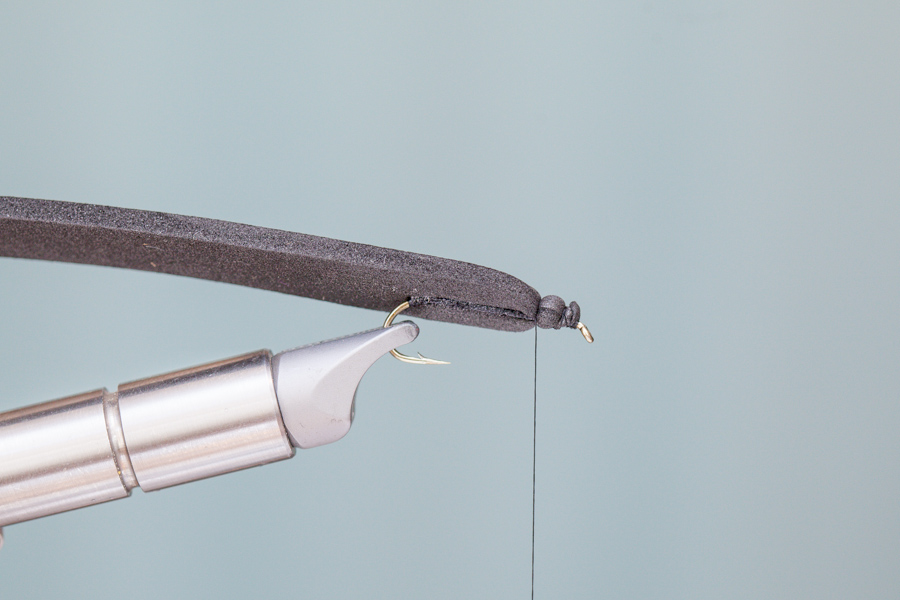
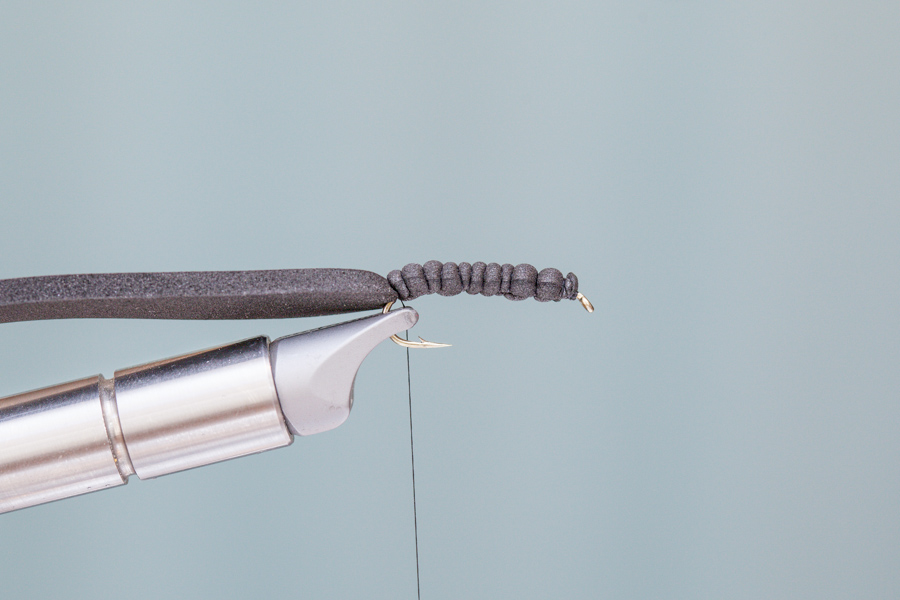
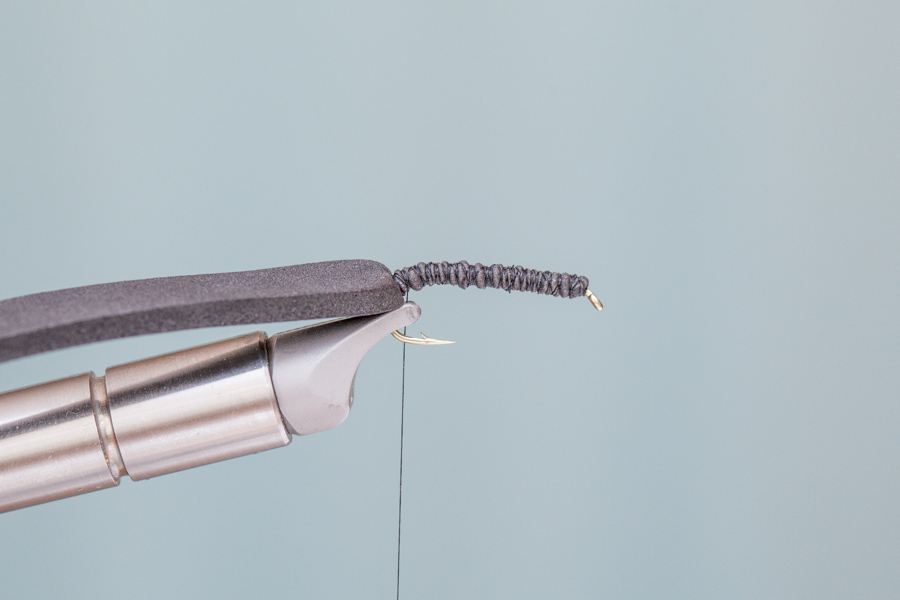
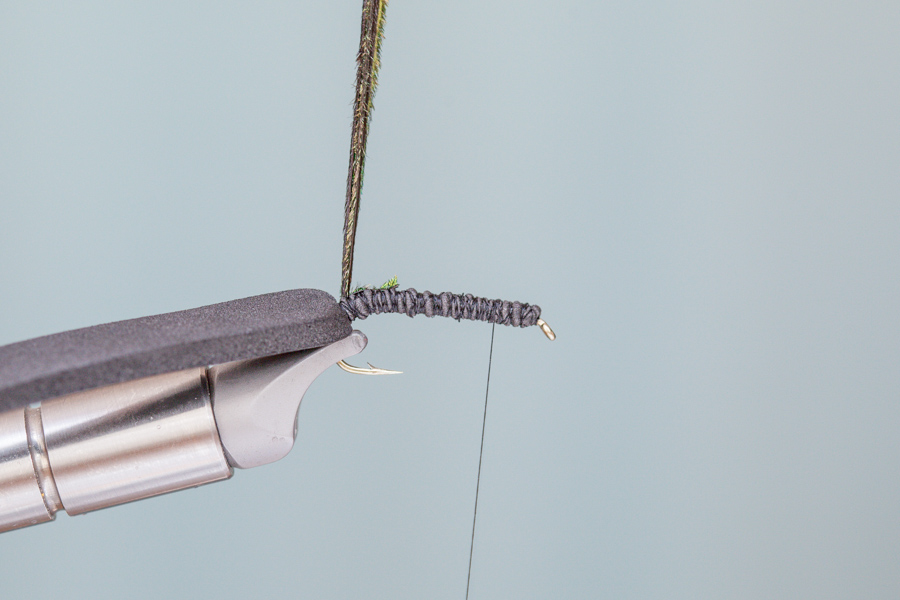
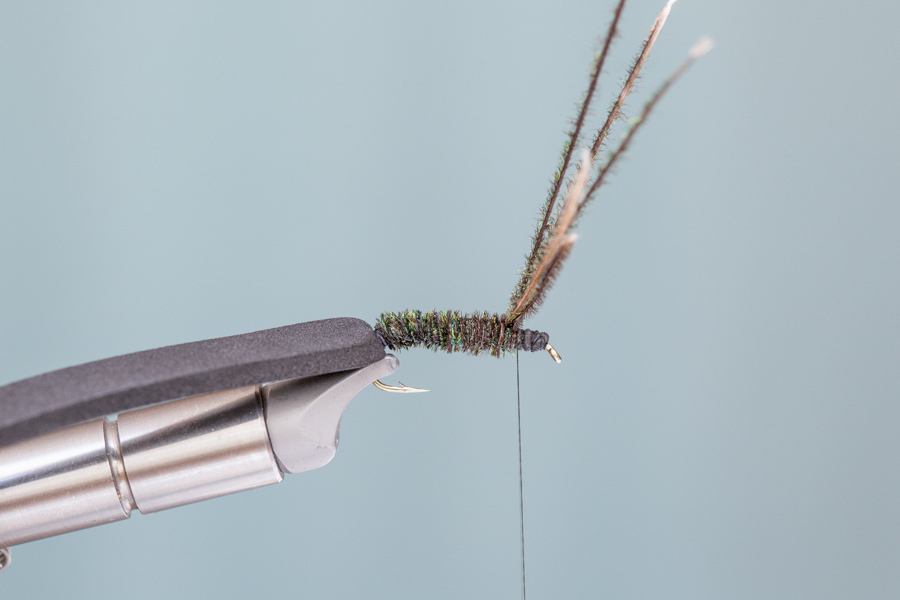
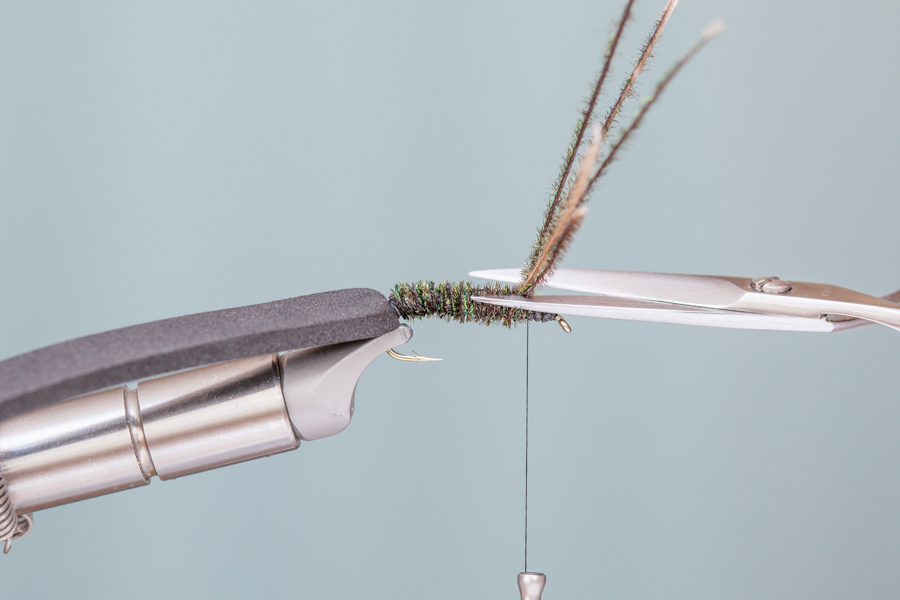
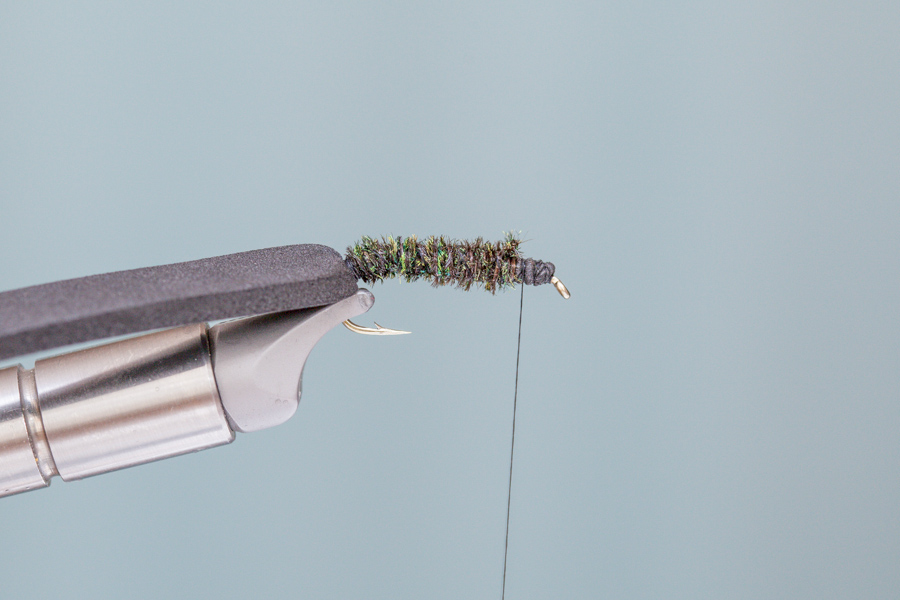
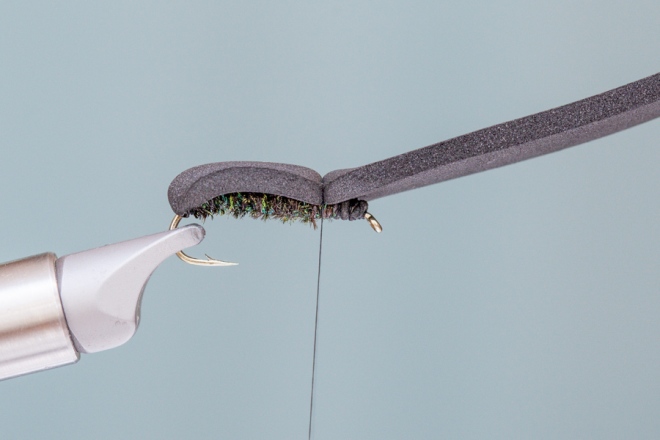

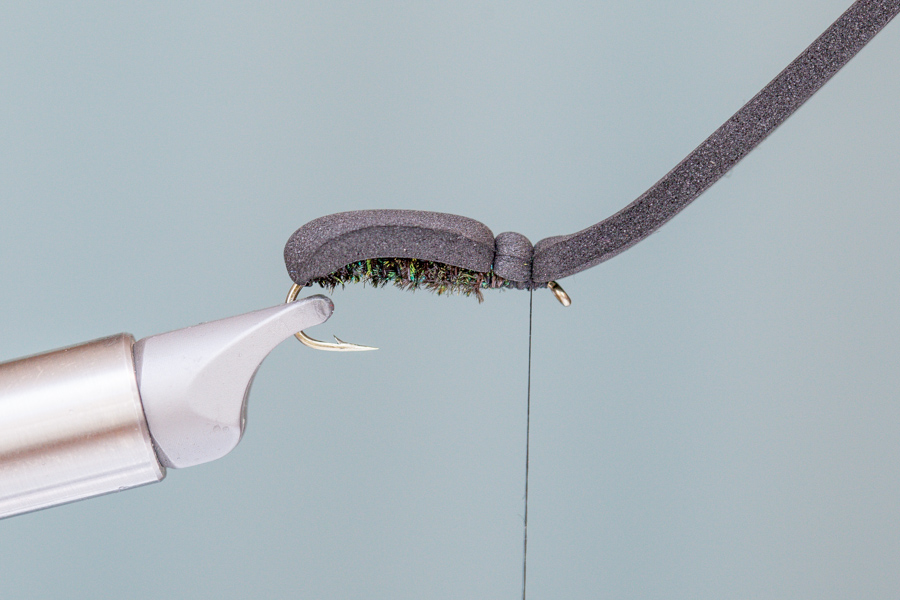
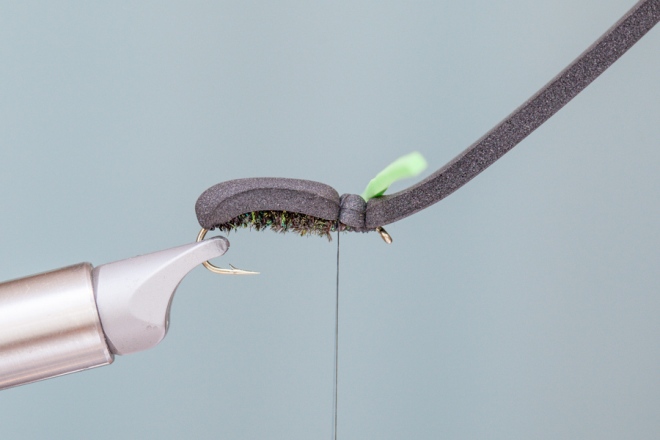
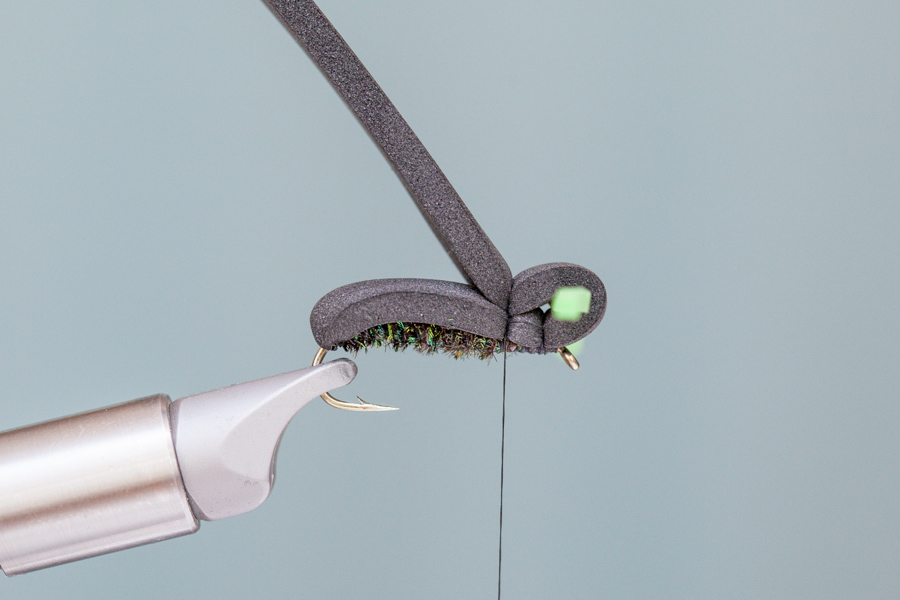
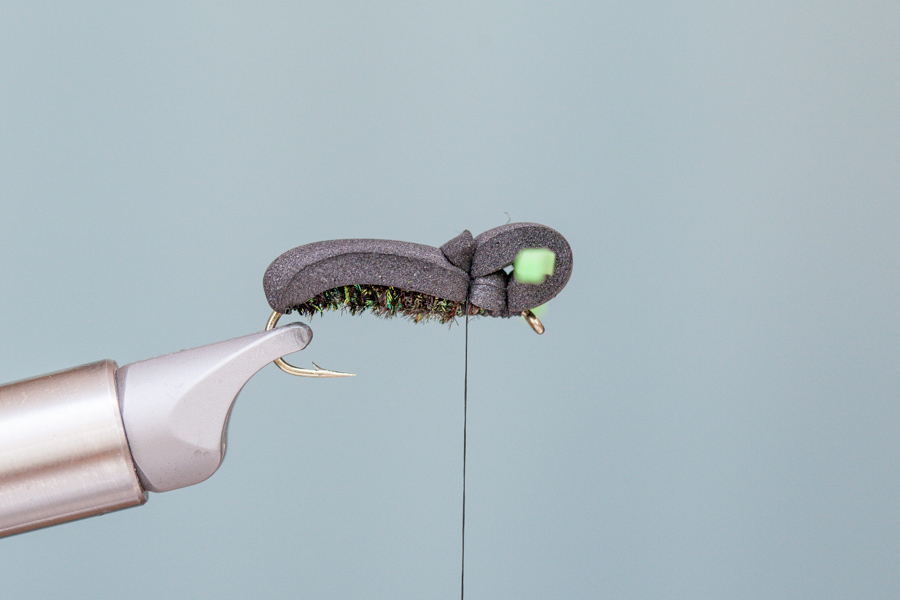
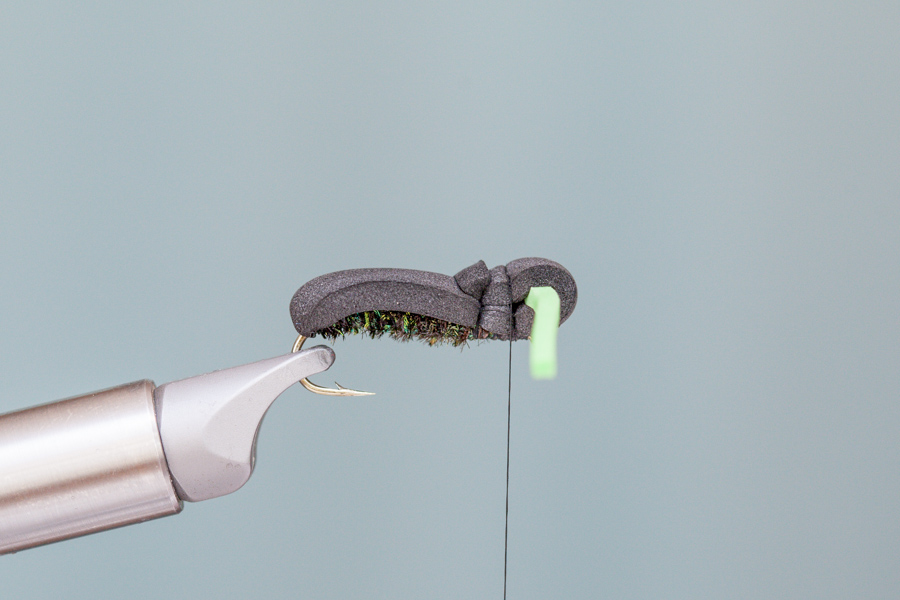
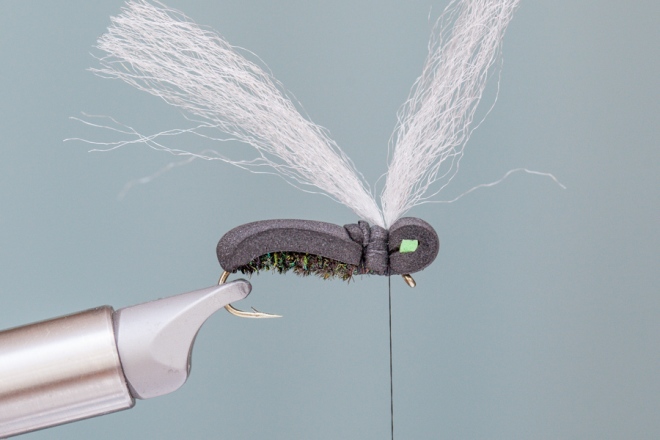
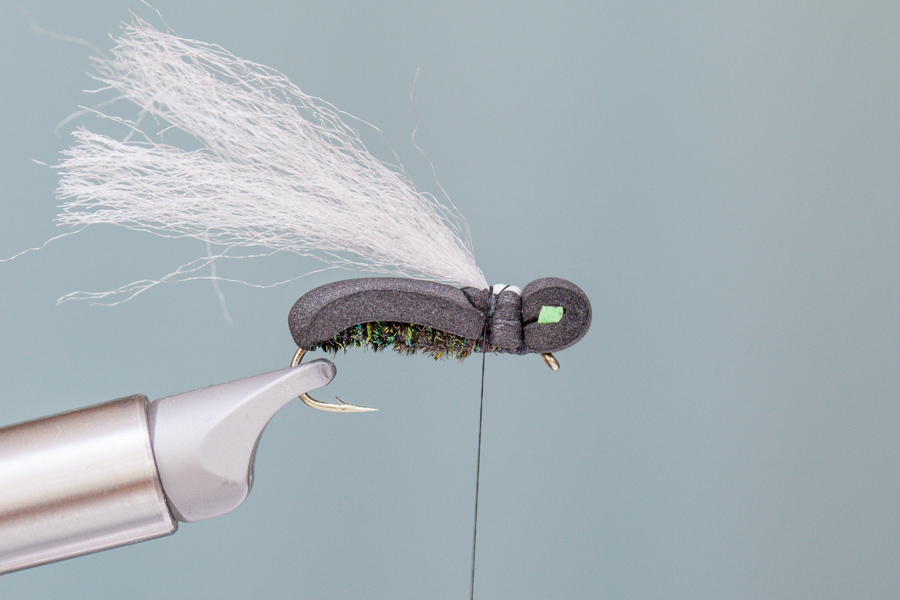
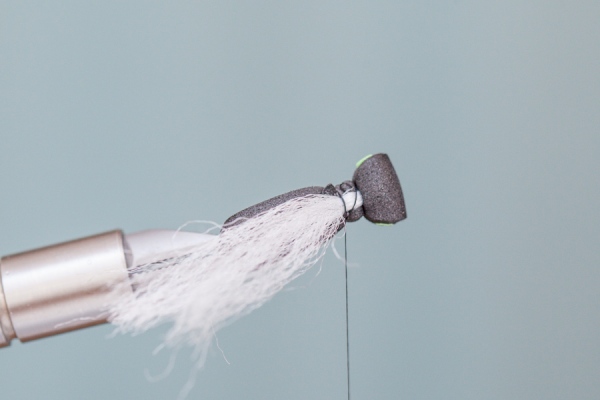
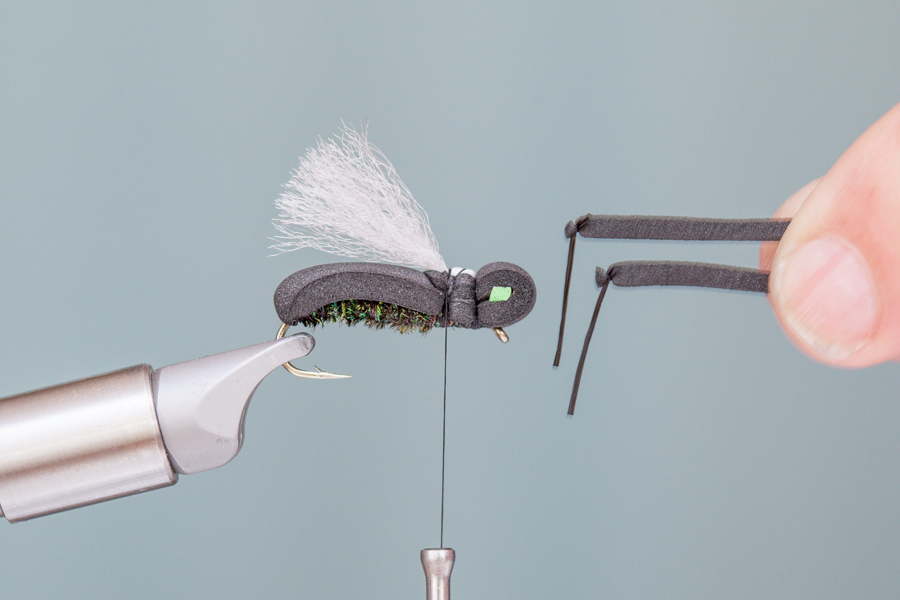
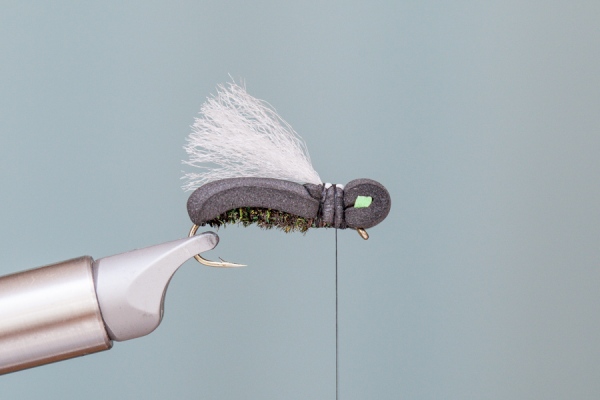
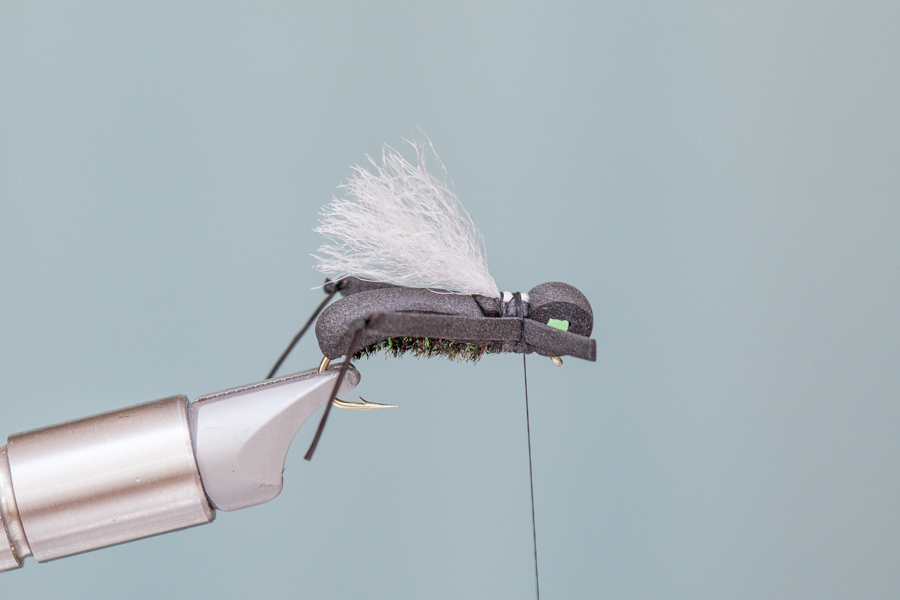
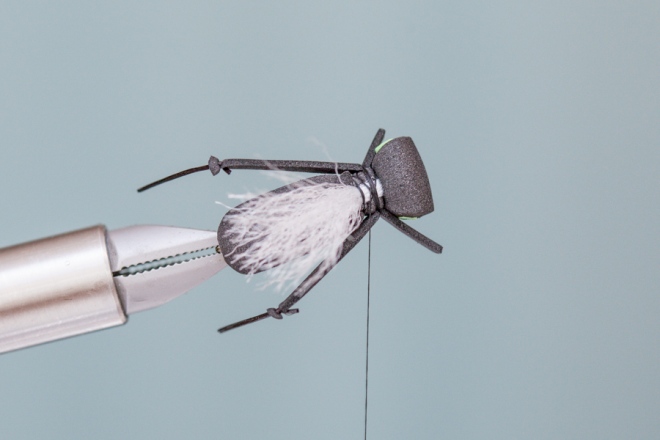
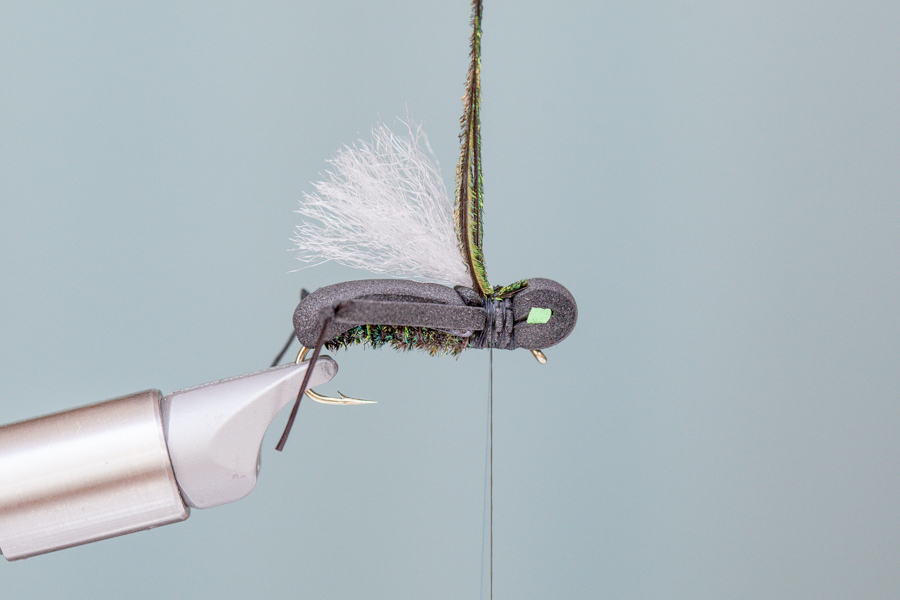

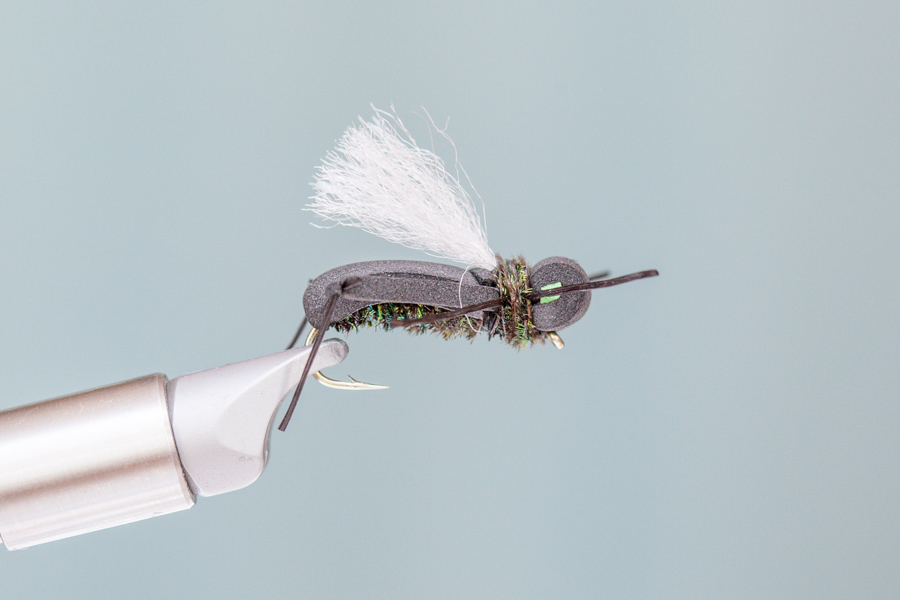
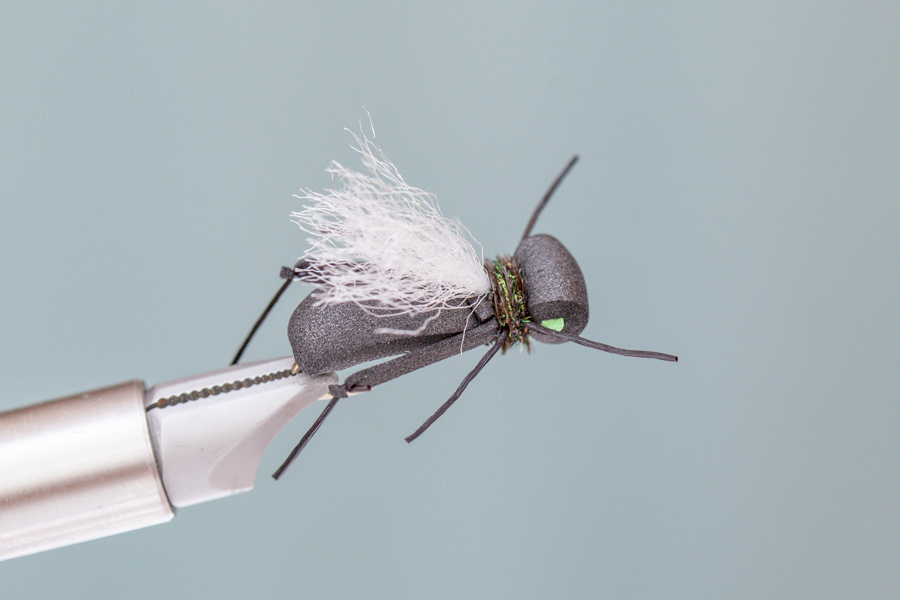
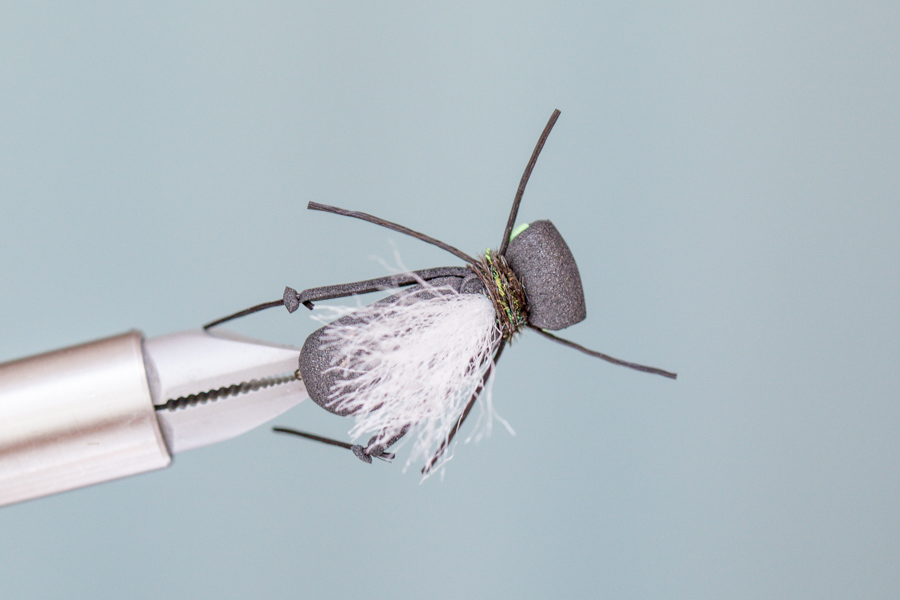
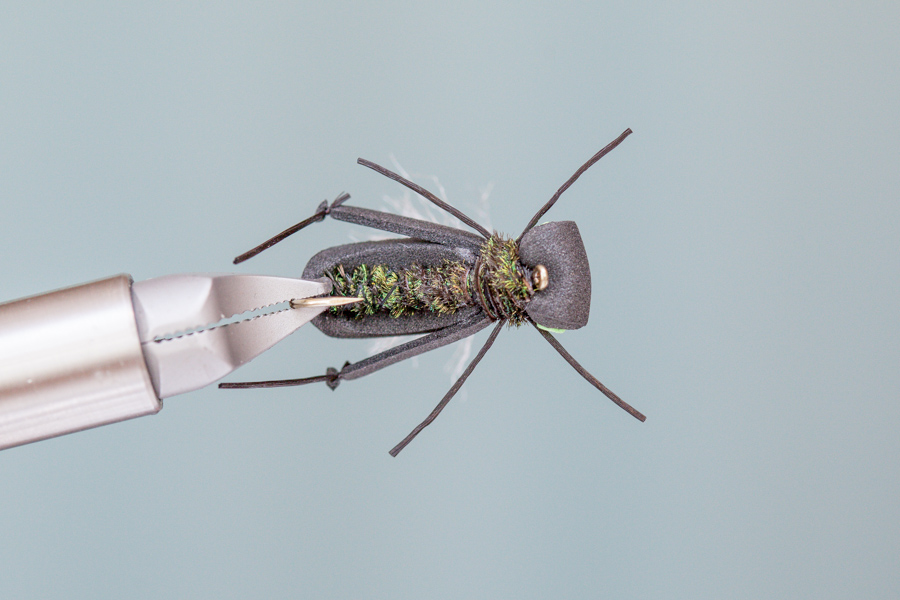
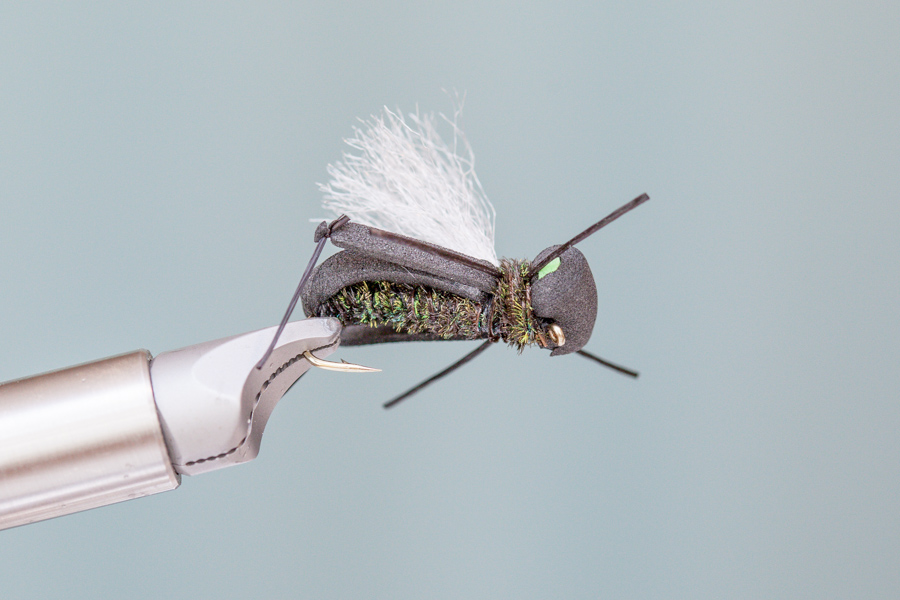
Nice fly, I think I’ll tie on an orange foam piece after the wing for visibility.
Reblogged this on graciaj503 and commented:
how to tie a fly!
Great pattern, is mortal with the balbel fish.